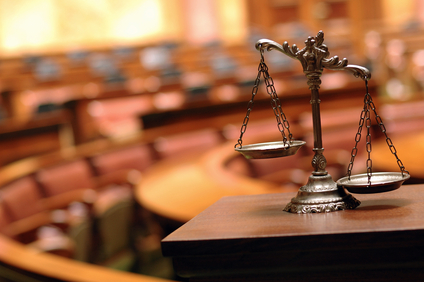Does the Netherlands have activist judges? They’re just doing their job


Judges are not stepping into the role of politicians as some on the right would claim, says professor Barbara Oomen. Rather, they are simply doing what they have been appointed to do.
Earlier this month, MPs discussed the latest term Forum voor Democratie leader Thierry Baudet had unearthed from his political philosophy handbook: dichastocracy.
The notion of government by judges is not something the average citizen, scientists and politician is overly concerned about but it would be wrong to dismiss it out of hand.
The term might well be used to shed light on a problem that doesn’t really exist, but it also obscures two issues which most certainly do. I might as well introduce a few difficult terms of my own and call them ‘rule of law apathy’ and ‘constitution phobia’. Put together they pose a threat to fundamental rights and that is something we should all be concerned about.
Let’s start with the first, fictitious, problem: judicial activism. We really don’t have a lot of that in the Netherlands. The average judge is as much of an activist as the average book keeper. To accuse him or her of activism is like throwing stones at ambulance staff on New Year’s Eve. Judges simply do their job, sometimes under difficult circumstances caused when the two other members of the trias politica, ie government and parliament, fail to do theirs.
The nitrogen emissions ruling came about because the government failed to comply to its own agreement and so found itself in breach of contract. And because parliament was asleep at the time, it took a judge to legally determine that the SyRI legislation which allows the powers that be to stick their noses into the nooks and crannies of our lives, really does constitute a breach of privacy.
In cases such as these, in which parliament fails to safeguard fundamental rights, it is a blessing that other organisations can turn to the court to protect the general interest.
Fundamental rights are not left-wing or right-wing. They have, however, been hard-fought. Started as a battle by some, freedom of religion, women’s rights and social security now belong to all. But rights only become reality within the rule of law if governments respects them too.
The real problems
And this brings us to the first real problem we have in the Netherlands: rule of law apathy. Rule of law is like an insurance policy. It may seem a bit of a bore but you ignore the terms and conditions at your peril. Schools, parliament, the workplace are all good places to talk about it.
The rule of law is everybody’s business. Perhaps Martin Niemöller said it best of all in his poem First they came. Failing to speak out when the Nazis came for the Communists, the Socialists and the Jews ‘they came for me. And there was no one left to speak out for me’.
In the Netherlands a second problem rears its head: constitution phobia. The Urgenda ruling and its interpretation of article 2 of the European Convention on Human Rights (ECHR) played a part in the debate in parliament.
Does the right to life just mean a government is not allowed to summarily execute its citizens or does it mean it should protect them against the dangers of climate change? Each to his own, but as a lawyer I think the ruling is in accordance with the jurisprudence of Strasbourg and the Netherlands.
European court
The question remains why the judge thought it fit to defer to the European Court of Human Rights and did not simply consult the constitution.
The answer is both simple and astounding: the right to life is not included in the Dutch constitution. And even if it were, the judge would not be able to base his ruling on it because the Dutch constitution prohibits constitutional review.
Judges can review acts against treaties, which means we have, as it were, outsourced the protection of our fundamental rights to Europe. And while European judges are increasingly bound to respect the constitutional identity of countries, the Netherlands does not have much of a constitutional tradition to take into account.
Rule of law apathy and constitution phobia, those are the two ills we really should be discussing, starting from the principle that a true democracy not only organises opposition but welcomes it.
We urgently need a debate about polishing up the institutions of the democratic rule of law so they regain their old lustre. The fundamental rights of, for and by the people deserve no less.
Barbara Oomen holds a chair in human rights at University College Roosevelt (Utrecht University).
This article was published earlier in the Volkskrant
Thank you for donating to DutchNews.nl.
We could not provide the Dutch News service, and keep it free of charge, without the generous support of our readers. Your donations allow us to report on issues you tell us matter, and provide you with a summary of the most important Dutch news each day.
Make a donation